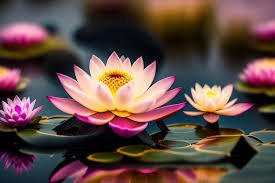Gratitude and Relationships: How Thankfulness Strengthens Connections
Feeling gratitude and not expressing it is like wrapping a present and not giving it
Hi Friend!
You all know about my deep seed love of Gratitude and this post I am about to write, highlights it’s importance even more.
In a self- absorbed world where distractions are constant and relationships can sometimes take a backseat, practicing gratitude is a powerful way to nurture and strengthen connections. Gratitude, often thought of as a personal virtue, has a profound impact on our interactions with others. When we approach relationships with thankfulness, we not only enhance our bonds but also create a ripple effect of positivity and trust.
The Science of Gratitude in Relationships
Studies show that expressing gratitude in relationships fosters stronger emotional connections. According to research published in the journal Emotion, people who feel appreciated by their partners are more likely to stay committed and report higher levels of satisfaction. Gratitude acts as a glue that binds people together, reinforcing the value of the relationship and deepening mutual respect.
Why Gratitude Matters in Relationships
Builds Emotional Intimacy: Expressing gratitude allows individuals to feel seen, valued, and understood. A simple “thank you” for everyday acts can make partners, friends, or family members feel appreciated and loved.
Reduces Conflict: Gratitude shifts the focus from shortcomings to strengths. When we emphasize the positives, it becomes easier to navigate disagreements with empathy and patience.
Fosters Trust and Reciprocity: Showing thankfulness creates a sense of safety and trust, encouraging others to reciprocate kindness and maintain a cycle of positivity.
Increases Resilience: Gratitude helps relationships weather challenges. Recognizing the good in each other provides a foundation of support during tough times.
How to Practice Gratitude in Relationships
Incorporating gratitude into your relationships doesn’t require grand gestures. Here are some simple yet effective ways to cultivate thankfulness:
Express Appreciation Regularly: Take time to acknowledge the efforts and qualities you value in others. Whether it’s a heartfelt message or a verbal “thank you,” these expressions go a long way.
Write Gratitude Letters: Compose a letter to someone who has made a difference in your life. Share specific examples of how they’ve impacted you and why you’re grateful for them.
Celebrate Small Moments: Don’t wait for major milestones to show gratitude. Appreciate the small, everyday acts of kindness that often go unnoticed.
Be Present: Show your gratitude by giving your full attention during conversations. Active listening is a powerful way to demonstrate that you value someone’s time and words.
Practice "Gratitude Rituals" Together: Engage in joint activities, like listing three things you’re grateful for at the end of each day. This shared practice can deepen your connection.
Overcoming Barriers to Gratitude
Sometimes, it can be challenging to feel grateful in a relationship, especially during times of tension or stress. Here are some strategies to help:
Focus on the Positives: Make a conscious effort to look for the good, even when things aren’t perfect.
Communicate Openly: If gratitude feels forced, discuss your feelings with the other person. Honest communication can pave the way for deeper understanding.
Practice Self-Gratitude: Recognize your own worth and contributions. When you feel good about yourself, it becomes easier to appreciate others.
The Ripple Effect of Gratitude
Gratitude doesn’t just strengthen individual relationships—it has a ripple effect that extends to communities and beyond. When we show thankfulness, we inspire others to do the same, creating an environment of kindness and connection. Imagine a world where gratitude is a daily practice—how much stronger and more supportive our relationships could be.
Final Thoughts
Gratitude is more than a feeling; it’s a practice that enriches every aspect of our lives, especially our relationships. By fostering thankfulness in our interactions, we can build deeper connections, reduce conflict, and create a foundation of trust and love. Remember, no act of gratitude is too small. Start today by letting someone know how much they mean to you. The simple act of saying “thank you” could transform your relationship—and your life.
XO Jenna
